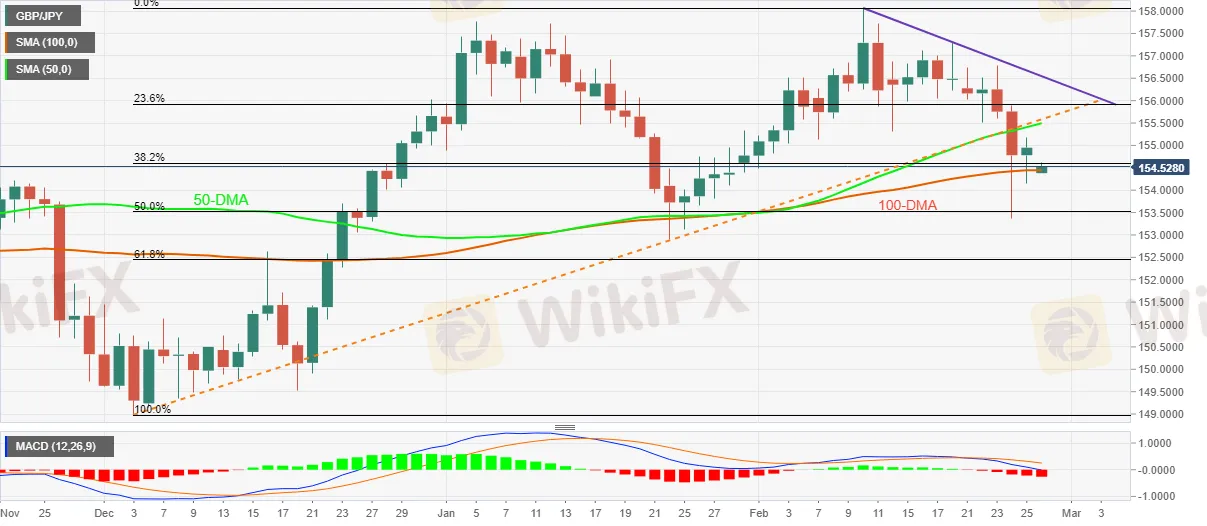简体中文
繁體中文
English
Pусский
日本語
ภาษาไทย
Tiếng Việt
Bahasa Indonesia
Español
हिन्दी
Filippiiniläinen
Français
Deutsch
Português
Türkçe
한국어
العربية
Gold Price Forecast: $1,930's eyed as Ukraine crisis intensifies, traders await news of peace talks
Abstract:Meanwhile, Ukrainian President Volodymyr Zelensky confirmed to Sky News that the two sides would hold the talks on the border of Ukraine and Belarus, where some of the Russian troops invading his country had been held.

Gold holds steady above a demand area on the charts as the focus stays on Ukraine-Russia risk.
In the background, the Fed is a driver for gold prices and US NFP will be eyed this week.
Gold: Volatility to continue as investors stay on edge
Gold is holding near last week's lows in the open as markets weigh up the weekend headlines surrounding the Ukraine-Russia crisis. On the one hand, Russia's President, Vladimir Putin, put nuclear forces on high alert over the weekend, escalating tensions, but on the other hand, there are reports of a peace talk in the offing. Consequently, financial markets are mixed at the open with large gaps in forex being filled.
Western powers' moves to cut some Russian banks from the SWIFT global payments system and freeze the Bank of Russia's reserves have antagonised the Russian president. Putin said he was giving the nuclear readiness order because “top officials in NATOs leading countries have been making aggressive statements against our country,” according to a report from Russian state news operator TASS.
Zelensky had refused to agree to an earlier request for talks in Belarus, arguing it was not neutral territory. Sky News, referring to a statement from Zelensky's office, said the two delegations will meet “without preconditions” near the Pripyat River.
The Russia risk premium has overwhelmingly contributed to the rise in gold prices from the start of February, analysts at TD Securities explained. ''The Russia risk premium has catalyzed a breakout from the wedge pattern, bringing in some chartist demand, and sparking a substantial CTA buying program which is supporting prices today. This rolling series of events have culminated in the strong price action.''
Looking forward, however, the analysts argued that the crushing weight of a hawkish Fed will ultimately sap appetite for precious metals, which should argue for lower prices as safe-haven flows reverse. ''Without sustained buying behaviour, gold prices are unlikely to remain in an uptrend, particularly as real rates rise sharply amid dual tightening via hikes and quantitative tightening.''
However, rising tensions in Ukraine have recently fueled expectations that the Fed may be less aggressive in tightening policy as it attempts to rein in inflation. Expectations for at least a 50-basis-point interest rate hike at its March meeting have fallen to 25% from around 34% a day ago, according to CME's Fedwatch.
In this regard, the data at the end of the week will be important. The US Nonfarm Payrolls report likely continued to recover in February following an unexpectedly strong Jan report—despite the Omicron-led surge in COVID cases, analysts at TD securities aid.
''We expect some of that boost to fizzle, though to still firm job growth pace. Seasonal adjustments were a factor last month and they will likely play a role again in Feb. We expect wage growth to slow to a still strong 0.5% m/m pace.''
Gold technical analysis

Disclaimer:
The views in this article only represent the author's personal views, and do not constitute investment advice on this platform. This platform does not guarantee the accuracy, completeness and timeliness of the information in the article, and will not be liable for any loss caused by the use of or reliance on the information in the article.
Read more

Will the Euro and US Dollar Reach Parity in 2025?
Euro-dollar parity sparks debate again as 2025 approaches, with multiple factors shaping the exchange rate outlook.

US Dollar Surge Dominates Forex Market
The global forex market continues to show volatility, with the U.S. dollar fluctuating last week but overall maintaining a strong upward trend. How long can this momentum last?

Oil Prices Soar for 5 Days: How Long Will It Last?
Last week, the global oil market saw a strong performance, with Brent crude and WTI crude prices rising by 2.4% and around 5% respectively. Oil prices have now posted five consecutive days of gains. But how long can this rally last?

How Big is the Impact of the USD-JPY Rate Gap on the Yen?
The U.S. Federal Reserve's repeated rate cuts and the narrowing of the U.S.-Japan interest rate differential are now in sight. So, why is the U.S.-Japan interest rate differential so important for the yen’s safe-haven appeal, especially when global economic uncertainty rises?
WikiFX Broker
Latest News
BI Apprehends Japanese Scam Leader in Manila
Bitcoin in 2025: The Opportunities and Challenges Ahead
Join the Event & Level Up Your Forex Journey
Is There Still Opportunity as Gold Reaches 4-Week High?
Bitcoin miner\s claim to recover £600m in Newport tip thrown out
Good News Malaysia: Ready for 5% GDP Growth in 2025!
How to Automate Forex and Crypto Trading for Better Profits
FXCL Lucky Winter Festival Begins
Warning Against MarketsVox
Is the stronger dollar a threat to oil prices?
Currency Calculator






